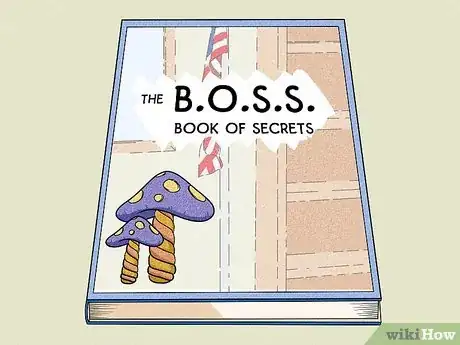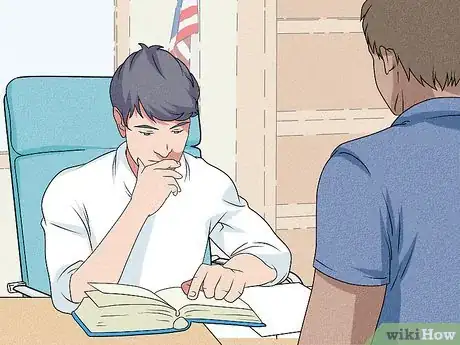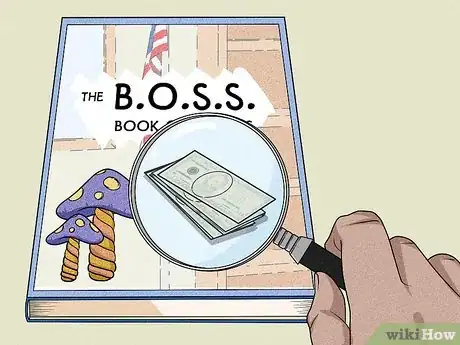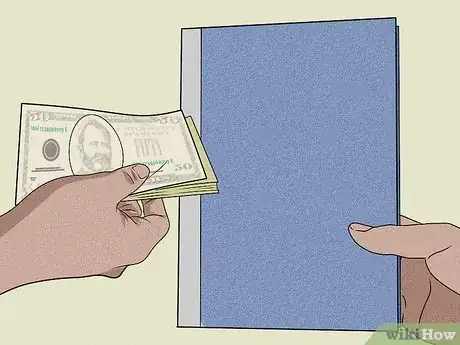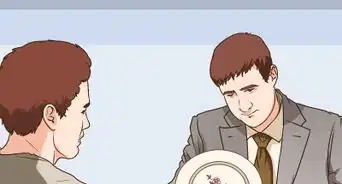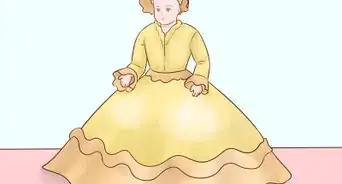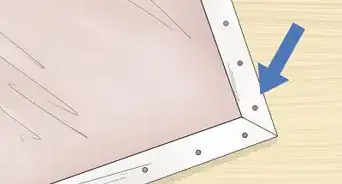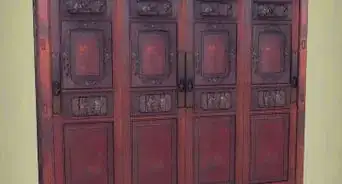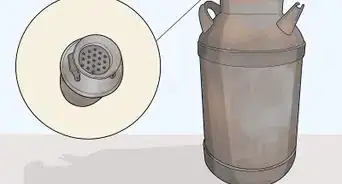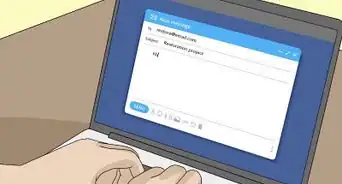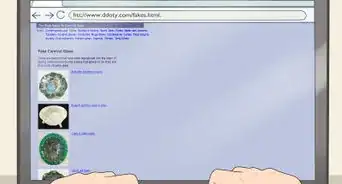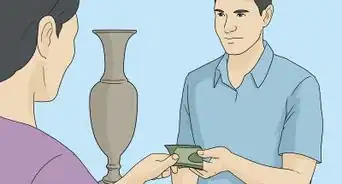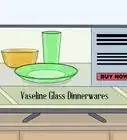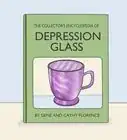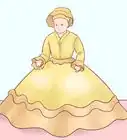wikiHow is a “wiki,” similar to Wikipedia, which means that many of our articles are co-written by multiple authors. To create this article, volunteer authors worked to edit and improve it over time.
There are 7 references cited in this article, which can be found at the bottom of the page.
This article has been viewed 31,368 times.
Learn more...
If you have a very old book, you might be hoping you can sell it and make some money. Maybe you've seen shows like Pawn Stars or American Pickers, where people cash in their antiques for piles of money. Or maybe you heard about the family in England who realized they had a Darwin first edition in their bathroom that was worth hundreds of thousands of dollars. This article will help you determine if your book is valuable, and if it is, how you to sell your rare book.
Steps
-
1Determine whether your book is valuable:[1]
- A book’s value is determined by a combination of five factors: rarity, importance, condition, provenance, and desirability.
- Let’s look at these one at a time. Rarity means how many copies of your book are available. The fewer copies of your book are available, the rarer it is, and the more valuable it will probably be.
- Importance means, was your book an influential piece of literature, or a ground-breaking work of science, or a text that changed history? The more important your book is, the more valuable it may be. First editions of important books can be very valuable.[2]
- Condition refers to whether or not a book is in good shape. No parts should be damaged or missing.
- Provenance refers to who owned the book before you. If your copy of the book has a special history or inscription, that can increase its value.
- Desirability just means, will someone want to buy your book? Is there a market for it?
- Most rare book dealers will look at your book and offer a free evaluation. If you aren't able to visit a book dealer in person, you can probably email them pictures and a description of the book and still receive a reasonably accurate appraisal.
-
2Get a second opinion from a professional appraiser or an auction house is also a good idea. These services may take more time and have some fees associated with them, however.[3]Advertisement
-
3Determine your book's value.[4]
- Let’s say your book is definitely rare, and valuable, and you want to sell it. Next you have to figure out just how much it’s worth. Putting the right price on a book can be tricky: make the price too high, and no one will want to buy your book. Make the price too low, and you may feel like you haven’t received your book’s full worth.
- Auction records are a good place to start to determine a rare book’s value. You may be able to do some of this research on your own.
- Speaking to a good book dealer is probably your most reliable option for putting a price on your rare book.
- Professional dealers usually have subscriptions to databases like the American Book Prices Current and Americana Exchange, which allow them to find the prices that books have realized at auctions during the past 30 years.
- After examining your book, looking at the five factors discussed in part one, studying the auction records, and drawing on their own experience, a good book dealer should offer you a fair value for your book.
- Confirming the evaluation with a major auction house like Christie’s or Sotheby’s is always a good idea.[5] Search online to find either website.[6]
- Don’t look only at prices on sites like eBay or Abebooks! You can certainly find many fairly priced rare books on those sites, and they’re not a bad place to start your research. But people with little to no expertise can list books here at whatever price they want, so don’t treat these sites as reliable sources of book prices.
-
4Sell the book.[7]
- How should you sell your book? A professional book dealer is probably still your best option for selling a rare book. Once you agree on a price, the book dealer will buy your book from you without any additional fees or wait time.
- Auction houses are also an option. A book may sometimes realize a higher price at auction than it would in a private sale. But auctions are unpredictable and prices can’t be guaranteed. In addition, the auction process takes longer.
- You can also sell the book yourself on sites like eBay or Abebooks. However, if you don’t have a long history and a reliable profile on these sites, your book may not attract the buyers you want. As a result, your book could sell for less than you think it’s worth.
Warnings
- Don’t look only at prices on sites like eBay or Abebooks! You can certainly find many fairly priced rare books on those sites, and they’re not a bad place to start your research. But people with little to no expertise can list books here at whatever price they want, so don’t treat these sites as reliable sources of book prices.⧼thumbs_response⧽
References
- ↑ https://www.prattlibrary.org/research/tools/index.aspx?cat=99&id=4695
- ↑ https://www.youtube.com/watch?v=Va1B0HrOhSw
- ↑ https://lifehacker.com/how-to-identify-collect-and-sell-rare-books-1830542345
- ↑ https://rarebooksdigest.com/2011/04/28/determining-a-rare-book%E2%80%99s-fair-value/
- ↑ https://www.christies.com/
- ↑ https://www.sothebys.com/en/
- ↑ https://lifehacker.com/how-to-identify-collect-and-sell-rare-books-1830542345
- http://www.rarebookbuyer.com/webuyoldbooks/
